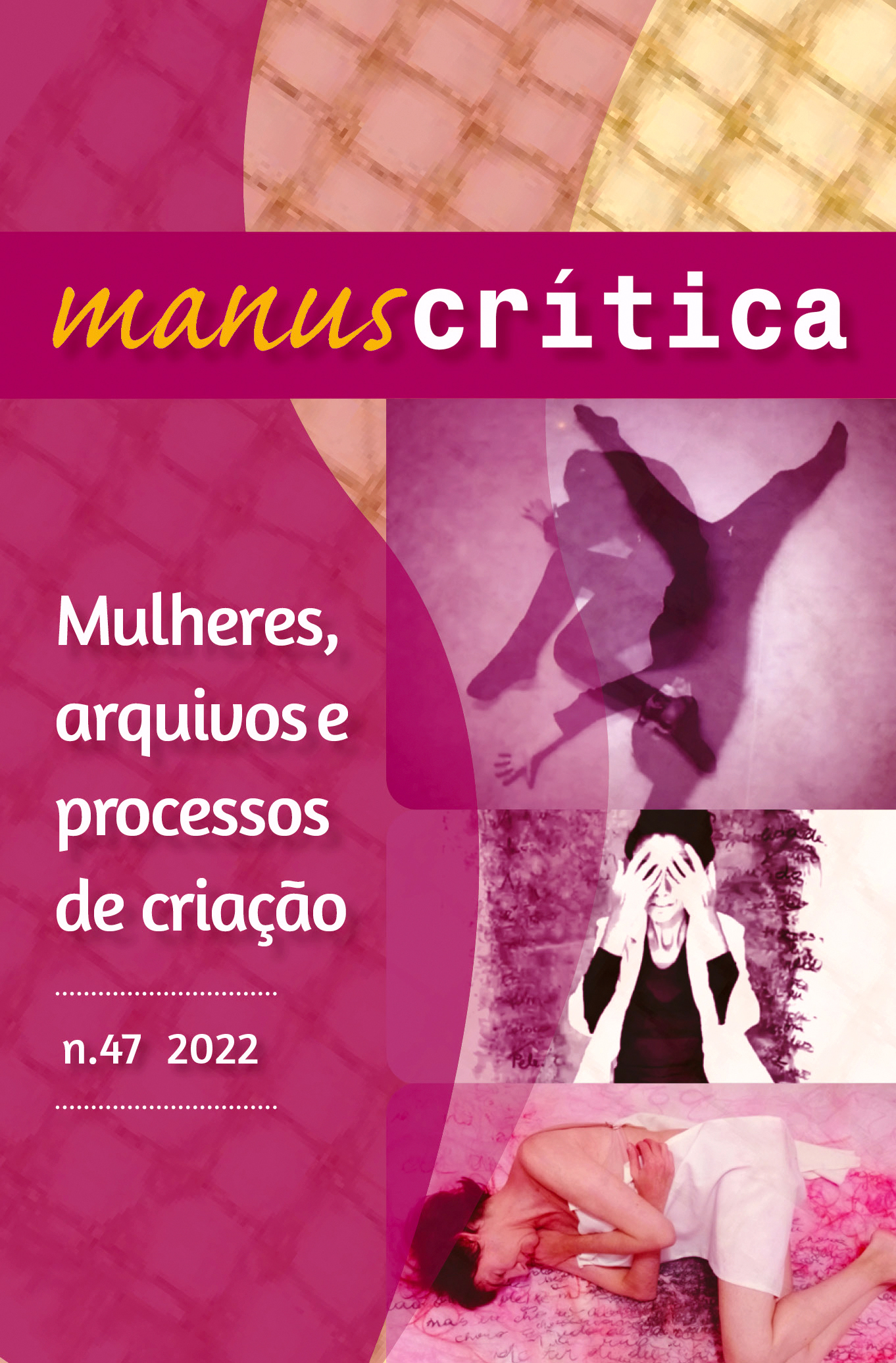Reflections on the poetic authorship of women in “Nada, esta espuma”, by Ana Cristina Cesar
DOI:
https://doi.org/10.11606/issn.2596-2477.i47p45-52Keywords:
women, poetry, authorshipAbstract
In Cenas de Abril (1979), Ana Cristina Cesar comes to innovate the poetic discourse made by women. Her sphinx-like writing contributes for the contemplations of being a woman in relation to the desire that surrounds the act of writing. In the poem selected for analysis “Nada, esta espuma”, Ana Cristina Cesar reveals a voice that insists on the “evilness of writing” by personifying, through the figures of the goddess and the mermaid, the silencing or liberation of poetry as a way of expression: figures of the ambivalences that permeate the lyrical self speech of the poem. Thus, this present article will analyze the displacements of women through writing, based on the reading of O riso da medusa (2022), by the author Hélène Cixous. In order to analyze the meanings of the figures presented in the text, such as the goddess who “punishes” and the mermaid who has a free breast, this work will approach the theoretical readings of Um é o outro (1986), by Elisabeth Badinter and “Sereias: sedução e saber” (2020), by Adelia Bezerra de Menezes.
Downloads
References
BADINTER, E. Um é o outro. Rio de Janeiro: Editora Nova Fronteira, 1986.
BEAUVOIR, S. O segundo sexo. Rio de Janeiro: Nova Fronteira, 2009.
CESAR, A. C. Crítica e tradução. São Paulo: Companhia das Letras, 2016.
CESAR, A. C. Poética. São Paulo: Companhia das Letras, 2013.
CHIZIANE, Paulina. Niketche – Uma história de poligamia. São Paulo: Companhia das Letras, 2004.
CIXOUS, H. O riso da medusa. Rio de Janeiro: Bazar do Tempo, 2022.
CIXOUS, H. Coming to writing and other essays. Massachusetts; London: Harvard University Press, 1992.
DERRIDA, J. Gramatologia. São Paulo: Perspectiva, 1973.
DURAS, M. Escrever. Rio de Janeiro: Rocco, 1994.
HOMERO. Odisséia. São Paulo: Ubu Editora, 2018.
MENESES, A. B. de. Sereias: sedução e saber. Revista do Instituto de Estudos Brasileiros, Brasil, n. 75, p. 71-93, abr. 2020. Disponível em: <https://www.revistas.usp.br/rieb/article/view/169168/160393>. Acesso em: 22 abr. 2022.
PRADO, A. Poesia reunida. Rio de Janeiro: Record, 2015.
RIBEIRO, F. F. As múltiplas faces de Ana Cristina Cesar: pequena perplexidade de órgãos ainda vivos. Revista Garrafa. Rio de Janeiro, vol. 16, p. 219-239, jan.-jun. 2018. Disponível em: <https://revistas.ufrj.br/index.php/garrafa/article/viewFile/18392/10972>. Acesso em: 22 abr. 2022.
SEXTON, A. The complete poems. Nova Iorque: Mariner Books, 1999.
TÔRRES, M. R. Considerações sobre a condição da mulher na Grécia Clássica (sécs. V e IV a.C). Mirabilia: electronic journal of antiquity and middle ages, Barcelona, n. 01, p. 49-55, dez. 2001. Disponível em: <https://raco.cat/index.php/Mirabilia/article/view/283713>. Acesso em: 22 abr. 2022.
TSVETÁEVA, M. O poeta e o tempo. Veneza: Editora Âyné, 2017.
Downloads
Published
Issue
Section
License
Copyright (c) 2022 Mariana Borda Anderson Gueiral

This work is licensed under a Creative Commons Attribution 4.0 International License.













